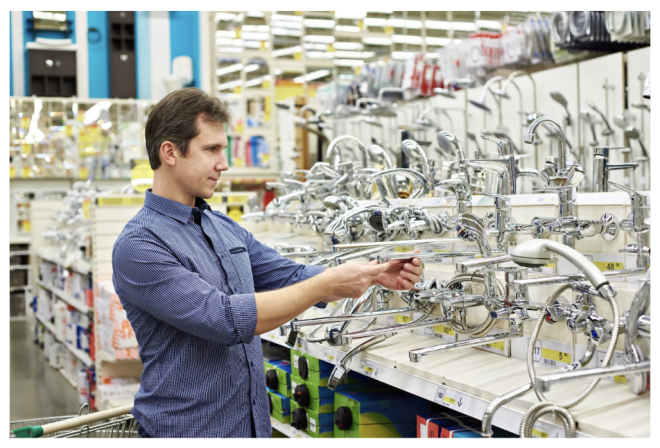- Change theme
Ultimate Guide to Asking the Right Questions for Plumbing Supplies

The importance of selecting the right supplies cannot be overstated in plumbing.
02:27 01 June 2025
The importance of selecting the right supplies cannot be overstated in plumbing. The choices made can considerably influence the effectiveness and longevity of plumbing projects. By asking the right questions before purchasing supplies, one can save valuable time, cut costs, and avoid a lot of hassle. Whether you're a homeowner keen to tackle DIY tasks, a professional plumber, or simply someone interested in understanding the plumbing essentials, this guide is designed to walk you through the critical considerations needed to make informed decisions. The ultimate goal is to provide a comprehensive approach to ensure optimal choices when shopping for plumbing supplies.
Understanding Your Plumbing Needs
Before diving into the depths of plumbing supply stores, it's essential to first identify the specific requirements of your plumbing project. Not all plumbing tasks are created equal, and the needs for a residential project can differ vastly from those of a commercial venture. For residential projects, factors like water usage, household size, and typical water pressure can guide the choice of supplies. Meanwhile, commercial plumbing generally demands more robust systems capable of handling larger volumes and pressures.
Assessing existing plumbing systems forms a critical part of the process—especially if replacements are on the agenda. It's vital to evaluate the current state of fixtures and pipes to determine what truly needs replacing or upgrading. Moreover, factors such as water pressure and how well new equipment will blend with the existing system must be considered to avoid future complications.
The Importance of Quality Materials
When it comes to plumbing, the selection of materials is a vital decision that affects both performance and durability. Plumbing supplies commonly involve materials such as copper, PVC (Polyvinyl Chloride), and PEX (Cross-Linked Polyethylene). Each material has its own set of benefits and drawbacks. For instance, copper is favoured for its durability and natural resistance to corrosion, but it can be on the more expensive side. PVC is generally more affordable and resistant to chemicals, but might not withstand high temperatures. PEX, meanwhile, boasts flexibility and ease of installation, yet it might not be suitable for outdoor use due to UV light degradation.
Investing in high-quality plumbing supplies can lead to long-term cost benefits. They tend to last longer and require fewer replacements over time, ultimately saving money. Thus, it's crucial to verify the quality and certifications of products, ensuring they meet industry standards and are backed by reliable warranties. These considerations safeguard against premature failures and lengthy repairs.
Cost-Efficiency and Budgeting
While quality materials are important, so is maintaining a realistic budget. When planning for plumbing supplies, it's prudent to balance cost with quality. Knowing when to spend on premium products and when to look for cheaper alternatives without sacrificing performance is key. For example, splurging on water heaters, which are more central to the functioning of a property, might be justified. On other aspects, such as certain fittings, savings could be found without significantly impacting performance.
Finding deals and discounts on plumbing supplies is another great way to stay within budget. Building relationships with suppliers or visiting plumbing supply shops in Belconnen could provide access to better prices. Also, it's important to factor in installation costs when budgeting for plumbing supplies, ensuring the total expenses align with financial expectations.
Navigating Plumbing Regulations and Standards
Understanding and adhering to local plumbing codes and regulations is crucial in any plumbing project. Each region may have distinct rules that dictate what can be installed and how, affecting everything from materials to water efficiencies. Compliance with both safety and environmental standards is essential to avoid legal issues and ensure the safety of a property.
When purchasing supplies, questions about warranties and return policies should be clear to avoid future misunderstanding. Ensuring that products are compliant with updated industry standards and safety regulations protects both the installer and the end user. Resources like government websites or professional plumbing associations are excellent starting points for current information on these standards.
Selecting the Right Supplier or Retailer
Choosing a reputable supplier or retailer makes a significant difference in the purchasing experience. It's wise to seek out stores known for their quality products and excellent customer service. A knowledgeable staff can provide invaluable insights and recommendations tailored to specific projects, which is a considerable advantage in avoiding common pitfalls.
Moreover, suppliers that maintain partnerships with leading brands are likely to offer higher-quality products. Customer reviews and feedback should also be leveraged to gauge the experiences of others, ensuring that the supplier or retailer has a track record of reliability. This approach helps build confidence in making purchasing decisions.
Conclusion
Informed questioning is pivotal when it comes to purchasing plumbing supplies. By understanding the needs, materials, budgeting, regulations, and selecting the right supplier, one can ensure a smoother and more efficient shopping experience. The insights provided in this guide help shoppers navigate the complexities of plumbing supplies, ensuring discoveries that are both practical and reliable.
Staying updated with industry trends is advantageous, as it presents opportunities for better, more efficient options in the future. It's time to start applying these strategies to upcoming plumbing projects, confident in the knowledge that the choices made will lead to successful and cost-effective outcomes.
